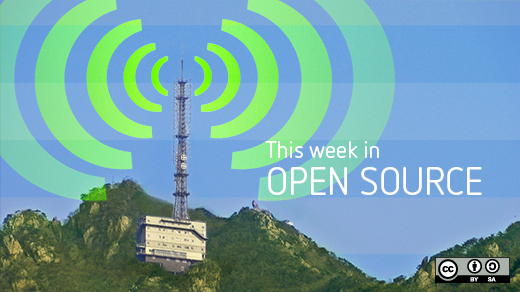Open source news this week: June 24 - 28, 2013
What other open source-related news stories did you read about this week? Share them with us in the comments section. Follow us on Twitter where we share these stories in real time.
- GitHub for book publishing. Two dozen mathematicians collaborated to use GitHub in an unexpected way—they used it write a book. The decision to use GitHub came at a cost, forcing the team to give up the prestige typcially associated with going through a traditional academic publisher. Wired.com has the story of why the academics chose to use GitHub to collaborate and publish their book.
- The IRS and OSS. There was a lot of chatter on the Web this week about reports that the Internal Revenue Service has been flagging open source nonprofits for a closer look. OReilly.com has more details.
- Taking a drive with open source code. Automakers are increasingly turning to open source software for in-dash systems. While this shift presents some exciting development opportunities, it also comes with some compliance challenges. Crain's Detroit Business has an in-depth look at the role open source is now playing in the auto industry.
- Take Stanford's online startup class. Two Stanford computer science professors are teaming up to teach a free course designed to give students "the engineering skills needed to build a technology startup from the ground up." The class is available on Coursera.
- Openness in the new world of health care. If you're looking for some concrete examples of how open source is changing the healthcare industry, Dignity Health has outlined specifics of how its saving time, money and lives by sharing information.
- Civic hacking in the spotlight. Many Opensource.com readers may already be familiar with the concept of civic hackers putting their development skills to work to help local governments. It's exciting to see this movement gaining so much momentum that the mainstream media outlet USA Today is exploring the trend. Columnist Laura Baverman hightlights what hackers are doing around the United States.
- Apply for a seat on the board. If you're passionate about Creative Commons and you have leadership skills, consider applying for a seat on the Creative Commons Board of Directors or new, to-be-formed advisory council. Head over to the Creative Commons site to apply.
- New public database could help solar energy. The search is on for less expensive organic compound to make solar energy, and it just got a little easier for researches to study possibilities thanks to the Harvard Clean Energy Project. Using the IBM World Community Grid, the Clean Energy Project Database (CEPDB) was recently released as "a free and open resource to the scientific community and general public. The CEPDB contains information on 2.3 million new organic compounds and their viability as potential solar cell materials. By making the database publicly accessible, Harvard scientists will enable other researchers to conduct more detailed investigations of organic compounds to aid in the development of semiconductors, related materials and ultimately devices such as solar cells."
Hat tip to Opensource.com community member Marcus D. Hanwell who passed this one along to us via our community mailing list. Thanks for sharing, Marcus!
Want more news?
Check out the headlines from last week's roundup.




Comments are closed.